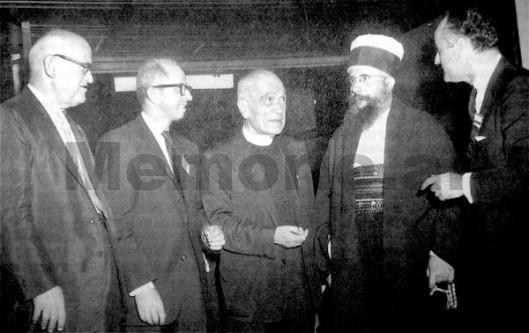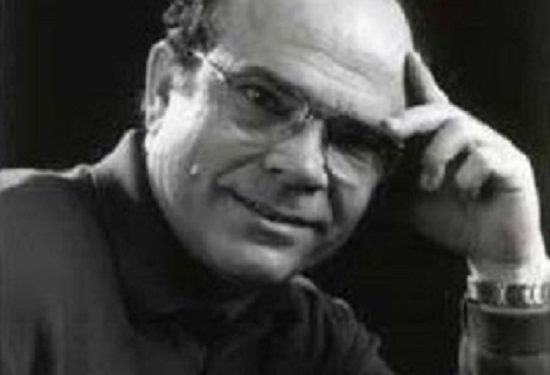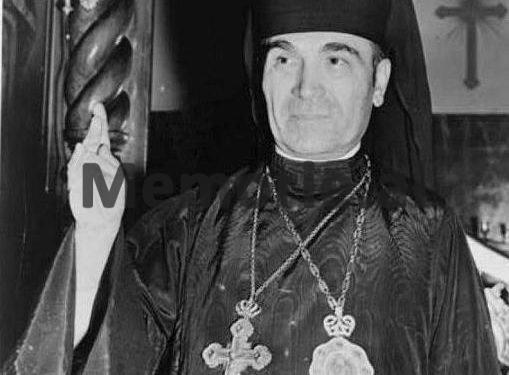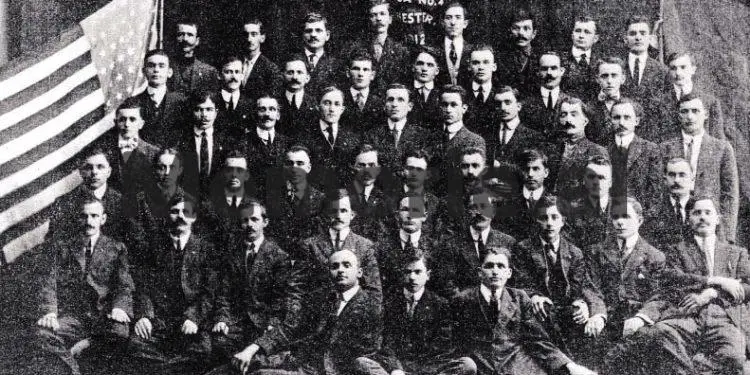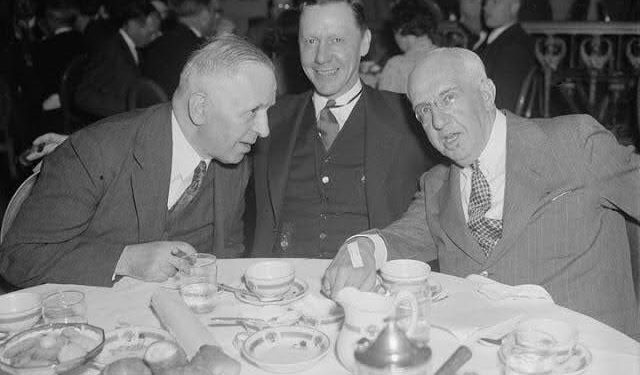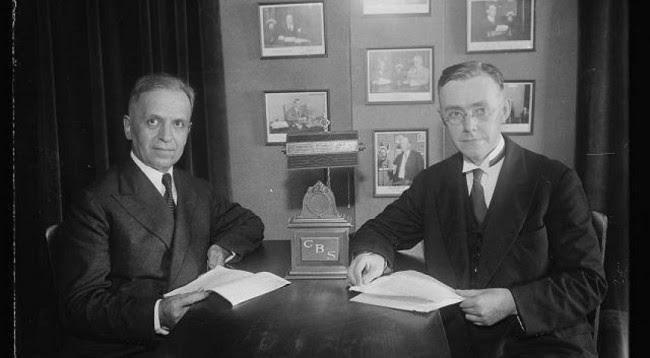By Vasil QESARI
The first part
– Notes about two unknown audio-cassettes with the speech of Fan S. Noli, held on the 80th anniversary of his birth –
Memorie.al / …Last night, until three o’clock in the morning, I was in a state of mind, almost surreal. I sat next to Fan S. Noli. Yes…! Yes! Next to His Grace himself, Fan S. Noli! How did it happen?! My friend, the kind and kind Monda Moisiu in the USA, gave me a special surprise recently. He sent me two audio tapes, where Fan S. Noli’s speech was recorded on the occasion of the 80th anniversary of his birth, the 50th anniversary of the founding of “Vatra” as well as a press conference given by him, in English. The recording of this ceremony, held in 1962, is an unknown document until now and it is not known under what circumstances and by whom it was made. Its quality is quite pure and has been preserved until our days, by the well-known patriot, the 76-year-old Albanian-American, the honorable Thanas Laskaj.
– When the idols are resurrected, and with them also Man…! –
So, as I said, I was listening to Noli’s voice on that blessed magnetic tape, and besides the excitement, many things surprised me! First, because I couldn’t believe that I was actually hearing, for the first time in my life, his voice. Because, there are some things in life which man imagines forever lost, extinguished, impossible to revive and that, of course, he never even thinks that the opposite can also happen.
There are some things, which are considered and remembered as frozen in time (something similar happens to us, it is said, when we see the busts or monuments of famous people, while they cast that cold, frozen gaze, indifferent, metal or marble and, from that look, the only memory that remains to us is the echo of their lives). Long story short, it is impossible for the dead to rise from the grave and die before our eyes, but that night, his grace, Fan S. Noli, woke up and appeared before me…!
…I was listening, haunted, to the voice from the tape recorder, and it seemed to me that I was in his simple lodge in Fort Lauderdale where, in the twilight of a truly extraordinary life, he spent the winter months and, at the same time, the end his. I was listening to him, and the image that had remained with me ever since the 80s, when Noli had appeared “alive” for the first time, appeared in front of my eyes, in a ten-second piece of film which the Albanian television of that time, I don’t know where and under what circumstances he found him and gave him a show dedicated to his life.
At that time, that short silent film sequence, which featured Noli in the garden in front of the house, almost left me breathless. Those film frames shot, obviously by an amateur, had a wonderful exhilarating and, at the same time, almost divine effect on me. The living image of the renaissance of the great patriot, my idol, of the conviction that as a true Albanian, he had to work for the nation; of the outstanding master and erudite, writer, historian and rare scholar, had taken on new dimensions in my mind.
A new image was thus created, different from the images of his photos yellowed by time as well as from the writings that I had seen since I was a teenager, on the pages of the “Kombi” newspaper, which he kept fanatically in a trunk of old, my childhood friend, Sotir Koçi. He, whom I otherwise called “Mendel the Bookman”, because he was really fond of searching for pre-liberation books and publications…!
… So almost in the morning, lying on the sofa, far from Albania and my boyhood memories, there in my house on Avenue de l’Université in Bordeaux, I was experiencing again, almost the same feelings and emotions, as those I had experienced when I had seen for the first time, his moving film image.
And I felt like a high school student once again, like when, a photo of Noli, which I had secretly torn from an album of the 60th anniversary of independence, I had glued to the front page of my textbook, the History of Literature. Like when, on a March Day in 1965, his heart had stopped beating far away, in a foreign land, and when our literature teacher, as a sign of mourning, commented on the poem “By the rivers”…!
… So I went back in time, precisely in 1962, and I was listening to Noli, just as if I were there, in that big hall where the Albanian community of America had gathered and celebrated his 80th birthday. I listened to his voice and thought: How was it possible for him to be the voice of such an old man?! Because it was an energetic, ringing voice, full of timbre, with a lot of boyhood inside. A voice which did not give him the impression of an 80-year-old. With diction by the actor. Sometimes strong and with high tones, sometimes low and with soft tones. With a laugh that came deep from his soul, accompanied by a clear, warm and, at the same time, extremely noble sound…!
What about the speech, the word and his wonderful vocabulary?! A language with beautiful nuances, a little close to the Korça-Cologne speech, often accompanied by short pauses. Pure Albanian language! From the phraseology and the simplicity of the word, from the way of narrating and arguing the ideas, I understood once again that it was completely true, that Noli the Great, the outstanding orator, had the power of the word, precisely in its simplicity. To the magical ability to communicate, with any kind of listener, regardless of the degree of intellect.
Of that rare quality, to make the souls of men for themselves. And, then, his subtle humor! That humor, always popular, protected by life, experiences and events experienced by him or heard and told by others. Humor that constitutes, perhaps, one of the least known properties of Noli, about whom a lot has been written, as an Academician of the Renaissance of Albanian Culture, but very little, about his intimate aspects. So, about the Man. For a very modest, simple and popular man…!
“HEAT” AND “SUN”: In gloriam!
… After getting over the thrill of listening “horizontally”, as if greedily to magnetic tapes, I told myself to listen to them one more time, for the very fact that the recording was made in such a disorderly manner that it made difficult to arrange chronologically.
So, I put you to work “whitening” the tapes, ideas and comments, words and lines, putting them, note by note, on paper. And while doing this work, I felt like an anthropologist who, after many searches, manages to find a piece of ancient bone and, then he gets down to studying and with a pencil in hand, he starts sketching, first the skull, and then the entire skeleton of a human being who lived thousands of years ago.
…From the beginning of the speech (which, as far as we know, is also the last public speech that Noli gave three years before his death in March 1965), you are impressed by the fact that, even though the ceremony in question was organized for 80 -the anniversary of his birth, he avoids any kind of praise and glorification, echoing only the most important events of our national movement.
In his long speech, which, in terms of evocations and instructions for the future of “Vatra”, resembles a Testament, he first appreciates the participation of many Albanians in that jubilee, which was not only his, but also many other noted historical events. He begins his speech thus:
“…This year we happen to have four different anniversaries. The first anniversary is my anniversary. The fourth anniversary is that of the twelfth class (1912), a very large class at Harvard University, with people who have become very famous. I will not mention many names, but I can tell you that the father of today’s president (John Kennedy – my note, V.Q.) was one of our classmates…!
Now, on the one hand, it is a strange thing, that I have lived eighty years, as much as I have lived, that I am exactly eighty now. On the one hand, it is bravery, but on the other hand, it is a misery. A misery which can be described very nicely with that case of Louis the 14th of France. He was one of the most famous kings, but at the end of his reign, there were many miseries. Even some of his wars, in the end, he lost.
Once, one of those generals who lost the war with the last, came to make a report and, being desolate, did not know how to start to show the misery that the French army suffered. Louis the 14th, said to him: Order, tell him, no matter how bitter the news may be, that, in our country, there is no good news. (…) The third anniversary is the anniversary of “Vatra”, which was created in June 1912. The fourth anniversary is the one that will come to us on December 28, that is, the anniversary of Albanian independence…”!
Then, he evokes and exalts the role that “Vatra” played in the history of Albanians in America and Albania itself:
“… Vatra, in June 1909, founded the newspaper ‘Dielli’, which has been alive for 53 years. There is no other Albanian newspaper that has had such a long life. (…) Before and during the First War World War II, ‘Vatra’ played the role of an Albanian government in exile.
The delegates of the defense of the Albanian cause in Europe, Konica and Turtulli, when the fate of its existence was in great danger, were kept by ‘Vatra’. And not only them, but also other representatives of the Albanian colonies. On July 4, 1918, the former “Vatra” who represented Albania before the American president Wilson, thus gaining one of the greatest friends, who saved him from being torn apart by the enemies.
At the Congress of Lushnja, “Vatra” had no delegates, but what did it sound like?! Her spirit was there. Some of the people elected by that congress were people from ‘Vatra’ again. The Congress of Lushnje made a Regency Council and one of its members was doctor Turtulli, a delegate of Vatra. When they formed the cabinet, the Minister of Foreign Affairs was Mehmet Konica, again a delegate of ‘Vatra’.
After the Congress of Lushnja, the heroic struggle to expel the Italians from Vlora took place. The spirit of “Vatra” was there. Even the song “Vlora, Vlora”, as you know, was made by a representative of ‘Vatra’ that we have here among us. You know the name, for those who don’t know, I’ll say it: Professor Thoma Naçi.
After Vlora was liberated, I also went to Albania as a widow, something to do there, and with what passport did I go?
Does anyone here remember him? I don’t believe, except for two or three. With the passport given to me by Çekrezi, as the representative of Vatra in Washington. In Geneva, when Albania was accepted as a member of the League of Nations, on December 17, 1921, the head of the delegation was again a representative of Vatra, I believe you know him! (Fan S. Noli – my note, V.Q.).
“Now, two words about the former prime minister of Albania that you have here – says Noli humorously – I’m not talking about bragging about myself, I want to tell you this: Are there many nations in which, the majority of be Mohammedans and elect a Christian priest as prime minister?! This seems to me to be the greatest praise that we can give to Albanians. (…) ‘Vatra’, pajaza, has done a commendable job, publishing books. Books are now being published a lot and this does not seem important to you. But the books that Vatra published were books that were published for the first time in Albanian.
(…) These are some of the services of Vatra in the past. The services of Vatra at the present time can be summed up in a few words. “The Sun” continues to illuminate the public opinion of the Albanians and gives them a platform where they can show and share their opinions about the affairs of Albania. Also, don’t forget that the ‘Sun’ and ‘Vatra’ have a short life. We have some friends, some very precious, generous friends, who have made plans to ensure the eternity of the Sun and the Hearth…”!
ALBANIA, GOOD OR BAD, WE DID IT!
And we left it to others to bless…!
… “Now, what does Vatra do from here on out? – asks Noli, continuing with the need to evaluate the work of the outstanding personality of the renaissance, his friend, Faik Konica, and entrusting this work to the intellectual and well-known publicist, Qamil Panariti. “Is there any work to be done at ‘Vatra’?” Yes, there are! I will list some of the jobs he can do. Vatra has work to do in the field of publishing.
For example, at Harvard, we have the collection of the newspaper ‘Albania’ by Faik Konica, sorry! (‘Albania’ started publication in 1897 and closed in 1909 – my note. V.Q.). The publication of a summary of this precious collection would be of great importance, because as Noli says: “… The history of the Albanian Renaissance can only be found in Faik’s ‘Albanian'”.
And further, he continues: “…Another thing that ‘Vatra’ can do is the reprinting of some books, which are no longer available today, for example ‘Vatra’s ‘Calendar’. If it cannot be published whole, to publish a summary, a booklet.
The biggest work that ‘Vatra’ can do now, is to put Qerim (Panariti) back and give us a summary of the material, which is in the collection of ‘Diellit’. There is a treasure for the history of Albania. Try to publish these books and tell Qerim not to go to heaven before these books are finished. This is my advice!
… And, it is while we finish calling the first “part” of his speech that Noli, on the only occasion of the jubilee lecture, raises the tones of his voice and complains.
The cry in question, according to him, is part of the “topic of the day”. But even though he does not address anyone directly, does not name names and does not put his hand on the “wound”, I think that this complaint is perhaps related to the attacks that have been made to him several times, as the leader of the Orthodox Church, as a person or as the head of ‘Vatra’, in connection with the so-called “cult” of praise or, with the silence that he had kept towards some political issues.
At that time, in ‘Vatre’, Noli also had opponents and enemies and, in his words, he explains many things below. First of all, the fact that he, (in my opinion quite rightly), puts himself in the ranks of the Renaissance, not in that of the “modern” politicians of the Albanians.
As the last renaissance, still alive, he thus becomes the spokesperson of all prominent patriots, who in the great program of their work, in the framework of commitment to our national movement, had as its main theme the making of Albania. In this regard, the only personal merit, which Noli alludes to and expresses directly, is the successful fulfillment of another specific mission of his: the “making” of the Albanian Autocephalous Church, the credit for the establishment and consolidation of which lies in indisputably, his work.
Here’s how he expresses it, further: “… Now let’s come to the topic of the day. Many of the Albanians cry to us in this way: Ore, what have you done, that you praise yourself so much? Even, when they say it in this way is, of course, as if they are cutting the language. We have not spared anything, we have done everything, almost what we had in our program to do… We had in our program to make an independent Albania, we did it!
Good or bad, we did it! We cannot expect the baby to have all the benefits. The baby should be given time to grow up and show what he is. How can you scold the parents and say: What have you done with this baby here?!
You have to wait until the baby grows up to tell you what kind of flower it is. We had planned to do Albania, we did it! We had planned to make an autocephalous church of Albania, we did it! Good or bad, we did it! Did we leave it as a burden to others, to be blessed? Yes, we did it”! (…)
BIKAKJINJI AND KALEMJINJI
or the pacifist Noli…
…Another thing, which left quite an impression on me while listening to the audio tapes in question, were his pacifist ideas. It is known that Noli, throughout his life, especially when he was engaged in political activity (until he managed to become prime minister of Albania), was never known for violent actions, nor for the politics of force and violence.
Precisely this spirit, this feature of the pacifist character and personality, is also expressed in the speech held by him. But, in the meantime, let’s not forget that this word, this recording belongs to the year 1962, that is, a time when; a) McCarthyism, b) the Cold War and 3) the Caribbean Crisis (the conflict over the installation of Soviet missiles in Cuba) were at their peak.
The world was threatened by another new war, this time with the risk of using nuclear weapons…! As early as November 1962, based on aerial reconnaissance, US President Kennedy was informed of the Soviet initiative to install nuclear-tipped missiles in Fidel Castro’s Cuba. It was the first time since World War II that such a crisis could lead to a confrontation and the use of atomic weapons between two superpowers.
This event full of tension, was experienced full of panic by the American population who were afraid of the Soviet threat of placing missiles very close, a few hundred kilometers from their country. The event in question, in addition, ignited even more the atmosphere of the pacifist movement in the world, which was characterized by the organization of demonstrations and powerful protests in many countries, including the United States of America.
And, it is precisely in this social-political context that Noli, in this speech, reveals his views on this issue and beyond. From his thoughts and ideas, we understand that he remained a man with a pronounced social-democratic worldview until the end of his life.
But, as we said above, let’s also not forget that at that time in the West there was a quite powerful pacifist movement which was supported by many prominent personalities of the world culture who were generally, with leftist ideas and, as Noli seems, was completely in the influence of ideas and their positioning…
In addition, Noli, who apparently wanted to keep the Hearth away from the divisions and internal conflicts that continued to remain the first and main danger of its extinction, did not even comment on the situation in Albania, regarding the question what Vatra should do for this purpose, even though, in fact, it is felt that such a thing was expected from those present in the hall.
But, Noli, who was in the current of international conjunctures, reveals his point of view simply and humorously: the “theory” as he calls it, of the two schools or currents that existed at that time in politics: that of a possible war between the two main camps in the world, capitalist and communist. So, on the one hand, the possible confrontation with nuclear weapons and on the other hand, the peaceful solution of problems, for a coexistence between peoples regardless of their systems and ideologies.
Noli clearly reveals his views, between these two opposing currents. Among those whom he calls “killer” and others he describes as “Internal personnel”. From his words, we learn that without any reservations, he let us understand that he was part of the ranks of the pacifists and not of the supporters of the war. But the question was raised: in this political context, what could be done for Albania? For Albania, which, unfortunately, had been placed for years in the other camp, i.e. in the communist one, its fate according to Noli, was tragically connected with that of the camp to which it belonged:
“What can we do today for Albania?” – he asks – “Now, before we discuss this problem, we need to know one thing, which almost all of us forget or do not give enough importance to. The problem of Albania, it is not a problem that Albanians solved today. Even when I say this, I do not want to humiliate Albanians, because they are not like other nations. No nation today can solve its problems, only Every problem of every nation in this world today that has become one is an international problem from top to bottom. The problem of Albania will be solved when all the problems of the world are solved. Memorie.al
The next issue follows




